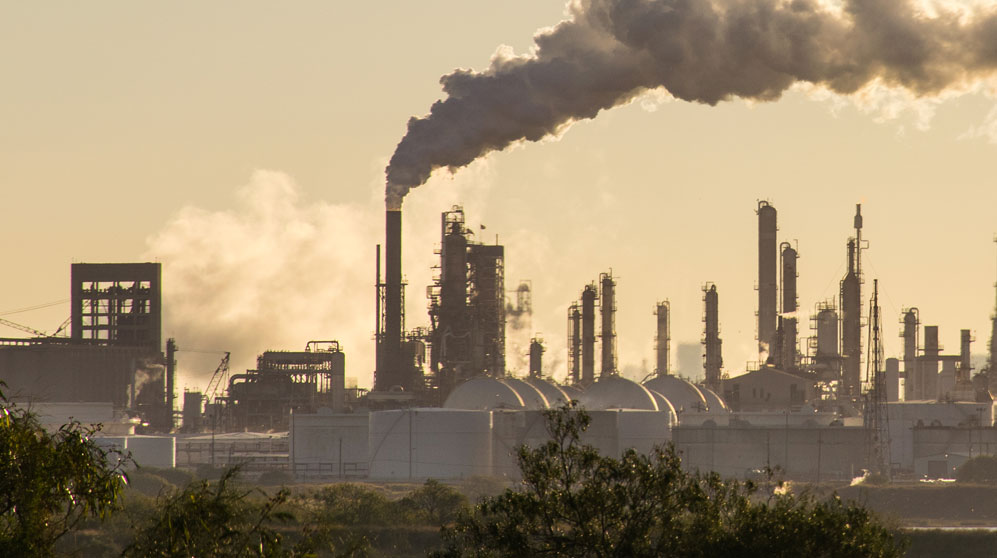Climate Tech Is on the Rise, Creating Compelling Opportunities
• 3 min read

Get the latest in Research & Insights
Sign up to receive an email summary of new articles posted to AMG Research & Insights.

Climate change is big news these days, and American innovators are creating fascinating businesses aimed at lowering carbon emissions, supplanting traditional supply chain inputs and creating new markets.
This means compelling opportunities for investors.
Interestingly, carbon-dioxide emissions—which most scientists finger as the leading contributor to a warming planet—have been in decline for decades. Since 1990, CO2 (measured by kilogram per dollar of GDP) has declined by more than half, according to World Bank data. In other words, economic growth has become less dependent on carbon-based input. The decline is most predominant in developed markets. Clearly, there is an economic benefit to finding cheaper and cleaner inputs that can replace reliance on more costly petroleum-based products, including fuels, chemicals and fertilizers.
This is where good old American ingenuity comes into play as companies finance innovation to solve known problems and create new markets. Venture investment has thrived on this, and the theme has played out across semiconductors, personal computing and software, internet and ecommerce, mobile computing, biotechnology, artificial intelligence, data analytics and many other areas of the economy. That ingenuity is now having a direct impact on climate-related technology. Venture capital now is looking to fund and develop pioneers in climate tech.
Historically, industrial-driven innovation and development placed significant demand on energy and natural resources. But this time around, entrepreneurs are discovering ways to reduce reliance on natural resources and carbon-based energy while demonstrating that their innovations can create cost advantages. Areas drawing interest from investors include energy, mobility and transportation, materials, industrial processes and agricultural production.
Some ingenious innovators are also reimagining supply chains, making industry more efficient through better use and reuse of natural resources. This leads to an economic return as innovations guide business change. Examples are becoming numerous and encompass a broad range of industries. Biological processes are supplanting long relied on and costly petrochemical inputs. Enhanced data analytics enabled by low cost, small-satellite technology allow for informed business decisions around construction and insurance costs. Novel agricultural inputs enable sustainable, healthier and more localized food availability. As PwC noted in a recent report on the State of Climate Tech 2020, key characteristics of successful venture investments include declining startup costs and clearer paths to scale.
Investors are beginning to see these declining startup costs and path to scalability as the overall supply chain evolves with the impact from climate- and clean-tech innovation. While policy changes and governmental mandates do have an impact on demand, perhaps more critical are evolving industrial and consumer preferences that demand change from suppliers.
This information is for general information use only. It is not tailored to any specific situation, is not intended to be investment, tax, financial, legal, or other advice and should not be relied on as such. AMG’s opinions are subject to change without notice, and this report may not be updated to reflect changes in opinion. Forecasts, estimates, and certain other information contained herein are based on proprietary research and should not be considered investment advice or a recommendation to buy, sell or hold any particular security, strategy, or investment product.
Get the latest in Research & Insights
Sign up to receive a weekly email summary of new articles posted to AMG Research & Insights.




